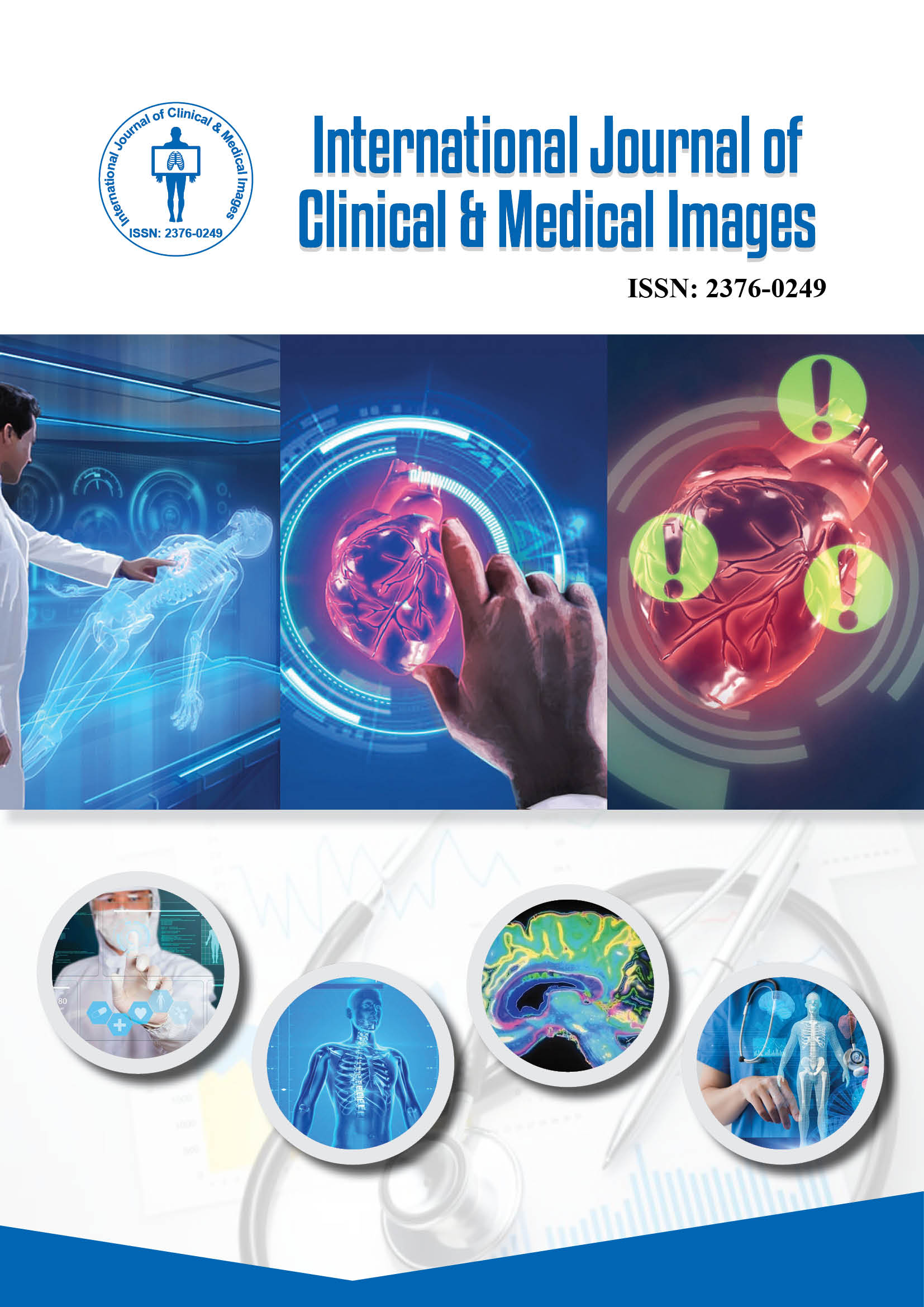2376-0249
Clinical-Medical Image - International Journal of Clinical & Medical Images (2024) Volume 11, Issue 9
Author(s): Adriana Lisa*
Department of Interventional Radiology, New York University, New York City, USA
Received: 01 September, 2024, Manuscript No. ijcmi-24-152872; Editor assigned: 03 September, 2024, Pre QC No. P-152872; Reviewed: 17 September, 2024, QC No. Q-152872; Revised: 23 September, 2024, Manuscript No. R-152872; Published: 30 September, 2024, DOI: 10.4172/ 2376-0249.1000976
Citation: Lisa A. (2024) Stress Imaging: A Key Tool in Assessing Cardiac Health and Diagnosing Heart Disease. Int J Clin Med Imaging 11: 976.
Copyright: © 2024 Lisa A. This is an open-access article distributed under the terms of the Creative Commons Attribution License, which permits unrestricted use, distribution and reproduction in any medium, provided the original author and source are credited.
A 60-year-old female patient with a history of hypertension and hyperlipidemia reported intermittent chest pain and shortness of breath during physical exertion. Given her risk factors and symptoms, her cardiologist recommended a stress imaging test to assess her cardiac health for potential coronary artery disease. She underwent a myocardial perfusion stress imaging study, which involved a treadmill exercise test combined with Single-Photon Emission Computed Tomography (SPECT). During the test, she exercised until reaching 85% of her maximum predicted heart rate, while a radioactive tracer was administered to visualize blood flow to her heart muscle. The imaging was performed both at rest and immediately after exercise.
The results revealed areas of decreased perfusion in the heart muscle during stress, indicating potential ischemia likely caused by narrowed coronary arteries. To confirm the diagnosis and assess the severity of any blockages, the cardiologist recommended a coronary angiogram. This procedure revealed significant stenosis in the left anterior descending artery. In light of these findings, the medical team discussed treatment options with the patient, including lifestyle modifications, medication management, and coronary intervention. After considering her options, she chose Percutaneous Coronary Intervention (PCI) with stent placement to address the blockage.
Following a successful procedure, the patient was closely monitored and began a cardiac rehabilitation program focused on exercise, dietary changes, and cardiovascular health education. Regular follow-up appointments included additional stress imaging to evaluate her heart function and treatment response. This case underscores the vital role of stress imaging in the early detection and diagnosis of heart disease. By providing essential information about cardiac perfusion under stress, this imaging modality enabled timely interventions that improved the patient’s cardiac health and quality of life, illustrating its significance in routine cardiac assessments [1,2].
Hypertension; Myocardial perfusion; Hyperlipidemia
None.
None.
[1]Mangla A, Oliveros E, Williams Sr KA and Kalra DK. (2017). Cardiac imaging in the diagnosis of coronary artery disease. Curr Probl Cardiol 42: 316-366.
Google Scholar, Crossref, Indexed at
[2]Lancellotti P, Pellikka PA, Budts W, Chaudhry FA and Donal E, et al. (2016). The clinical use of stress echocardiography in non-ischaemic heart disease: Recommendations from the European Association of Cardiovascular Imaging and the American Society of Echocardiography. Eur Heart J Cardiovasc Imaging 17: 1191-1229.
 Awards Nomination
Awards Nomination

